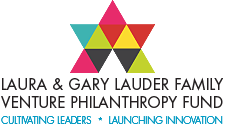When I was initially invited to respond to Jeremy Burton’s thoughtful essay, I was delighted, flattered, and worried. I am not a “mega-donor,” but I aspire to transform an area of Jewish life about which I am passionate -Jewish day school education, specifically teacher recruitment, training, and retention. I was worried that I couldn’t properly respond to all of Mr. Burton’s probing questions, but I offer my story as an initial attempt.
Professionally my husband and I manage a family venture capital (VC) fund in Silicon Valley. We have learned to invest in management that has creative and exciting ideas. We invest mostly in startups – not because we think that public equities will not provide a good return but because seeding new ideas executed by highly capable management transforms industries and markets. We co-invest with other VC firms and investors to spread risk, knowing that a quality company will grow and need on-going managerial and financial support. We serve on the boards of some of the companies, guiding and advising them on strategy and direction.
We invest in our philanthropy quite analogously. We make relatively small but substantial investments in United Jewish Communities, which we know will provide ”solid returns” much like the blue-chip public equities. When we invest in start-ups, we look for a high bang-for-the-buck quotient. As in the VC model, we co-invest with other philanthropists (so as to leverage our funds and spread risk) and we look for outstanding social entrepreneurs and compelling issues that speak to our passion.
When evaluating my investment in Jewish philanthropy I ask myself the questions that Mr. Burton poses: How do I define my community? Does community include my family, neighborhood, or synagogue? I am always a member of each of these communities, and my funding priorities and time allocation will shift over the course of my life. Recently, my time allocation and major funding priorities have shifted from global and secular issues (which I still fund) to the education of our children.
With my first child about to enter a day school in Palo Alto, I have come to realize how such schools provide the foundation and vibrancy for Jewish and general communal life. I realized that teachers were the crucial link to our children’s love of learning and their heritage. And so, thinking locally and acting globally I invited several funders to work together to create a model national program to address the critical teacher shortage facing Jewish day schools. Mr. Burton asks: How much should we consider the opinions of others when making philanthropic choices? That was easy. I sought out the opinions of professionals in the education field, people steeped daily in these issues.
Jeremy then asks: Do I have an obligation to those who are responsible for my wealth? Yes and no. In my thirties, I am professionally successful, but I am also grateful to my parents and grandparents for providing me with the resources and a value system that enabled me to feel fulfillment in doing tikkun olam and tzedakah. My mother-in-law was a fifth grade teacher in Harlem and my paternal grandfather was a tzaddik and teacher. I feel a genuine sense of history as I take my turn to make our education system more effective.
I believe that donors should follow their passion and invest both in management and execution. Accountability to the donor and to the community is critically important. Life is short and the world is small. I am grateful that my Jewish values and resources make this world a holier place.
